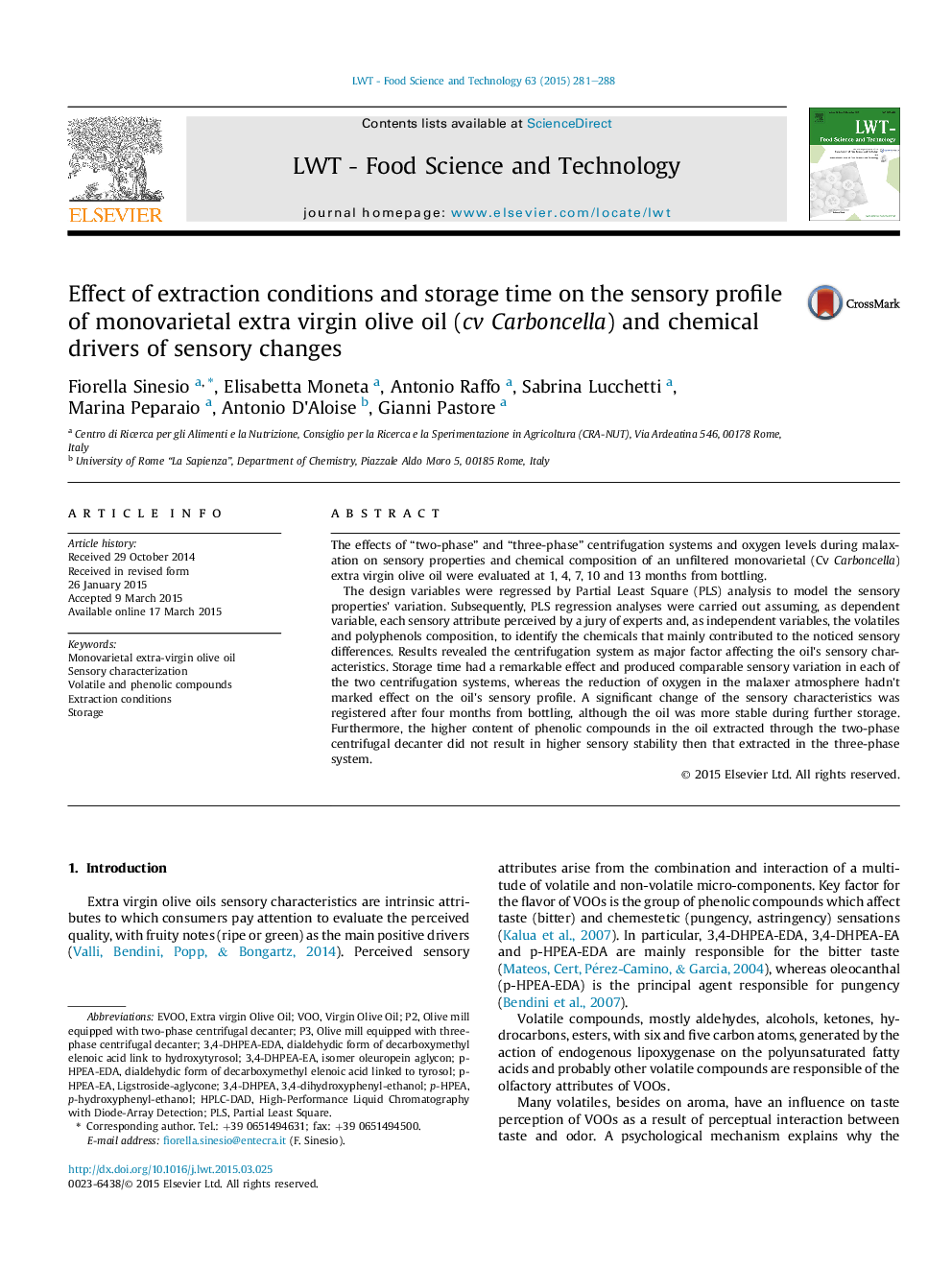| Article ID | Journal | Published Year | Pages | File Type |
|---|---|---|---|---|
| 6402042 | LWT - Food Science and Technology | 2015 | 8 Pages |
â¢The centrifugation system was a major factor affecting on oil sensory properties.â¢The storage achieved comparable sensory variation in the two centrifugation systems.â¢The reduced O2 in the malaxation chamber had no side effect on oil sensory profile.â¢A significant change of the sensory profile was registered at four months of storage.â¢Higher phenol content in two-phase oil did not result in improved sensory stability.
The effects of “two-phase” and “three-phase” centrifugation systems and oxygen levels during malaxation on sensory properties and chemical composition of an unfiltered monovarietal (Cv Carboncella) extra virgin olive oil were evaluated at 1, 4, 7, 10 and 13 months from bottling.The design variables were regressed by Partial Least Square (PLS) analysis to model the sensory properties' variation. Subsequently, PLS regression analyses were carried out assuming, as dependent variable, each sensory attribute perceived by a jury of experts and, as independent variables, the volatiles and polyphenols composition, to identify the chemicals that mainly contributed to the noticed sensory differences. Results revealed the centrifugation system as major factor affecting the oil's sensory characteristics. Storage time had a remarkable effect and produced comparable sensory variation in each of the two centrifugation systems, whereas the reduction of oxygen in the malaxer atmosphere hadn't marked effect on the oil's sensory profile. A significant change of the sensory characteristics was registered after four months from bottling, although the oil was more stable during further storage. Furthermore, the higher content of phenolic compounds in the oil extracted through the two-phase centrifugal decanter did not result in higher sensory stability then that extracted in the three-phase system.
